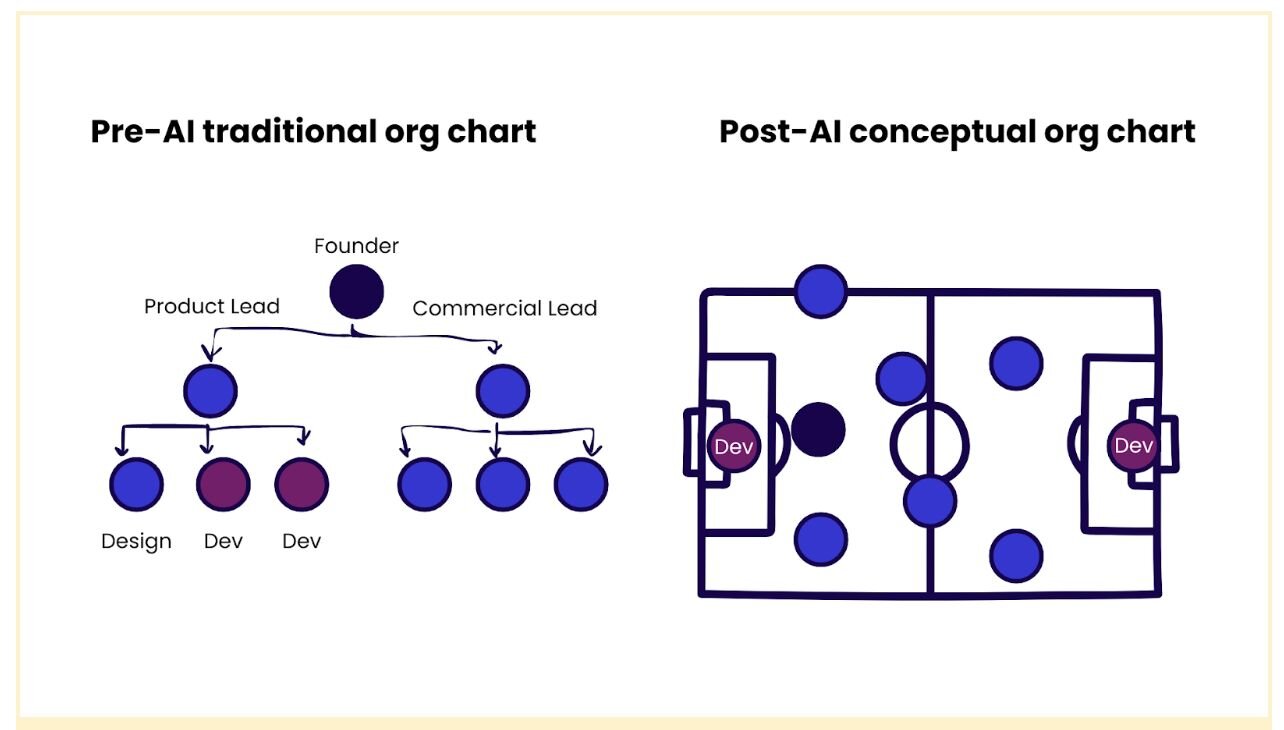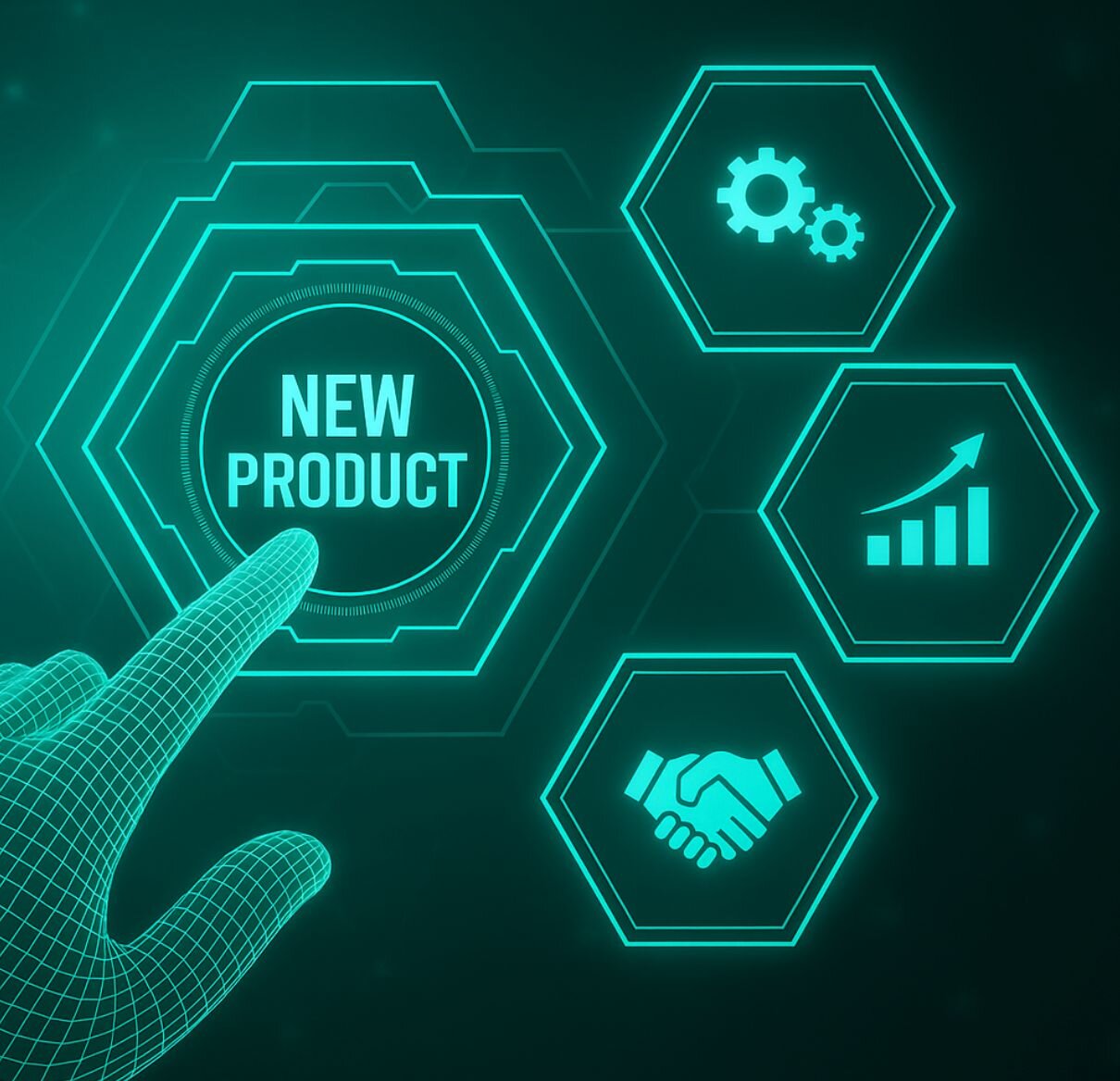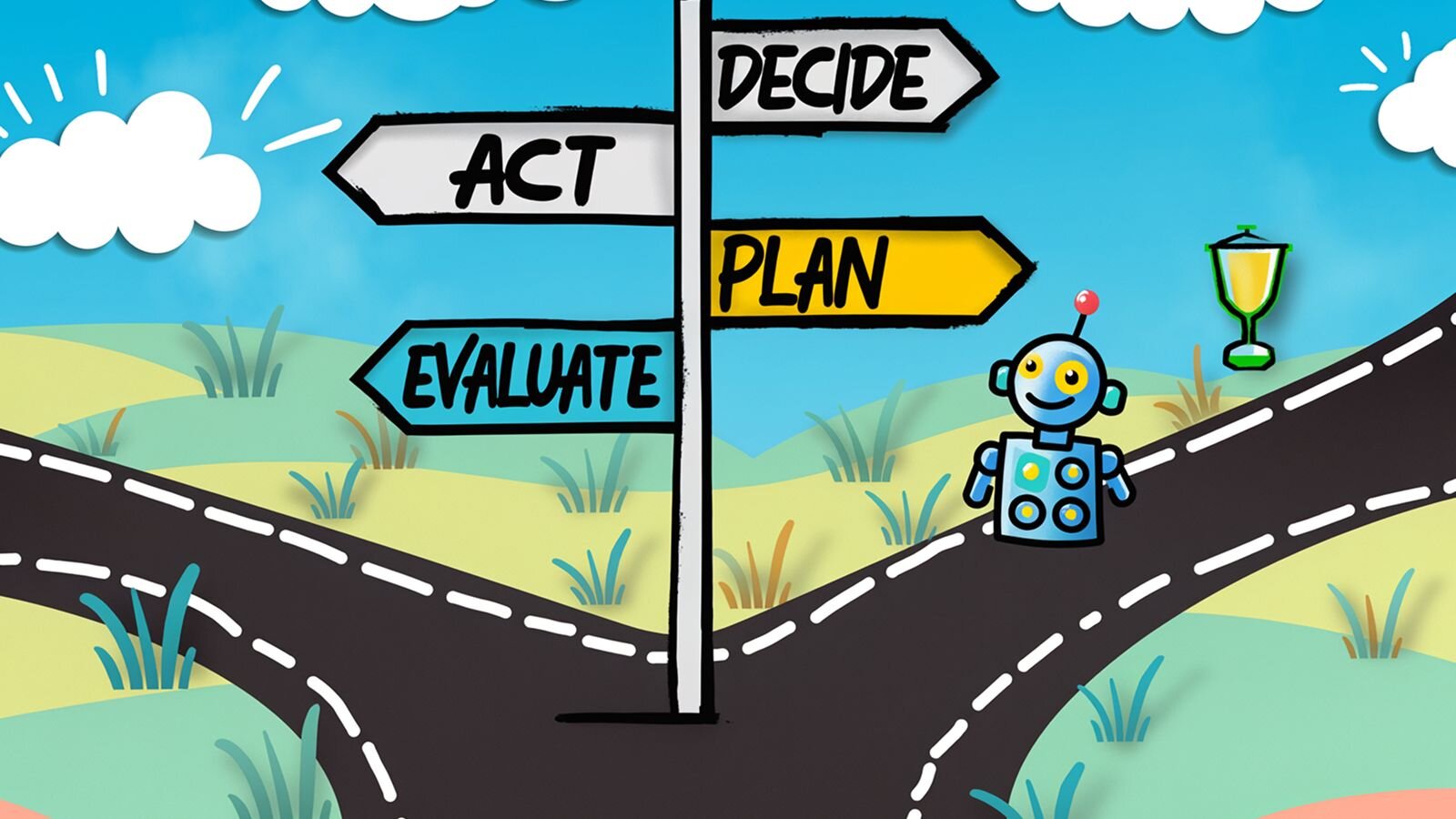Are you thinking of getting into a product management role? How does one make the leap from, let’s say a customer success role, into a product role?
Let me start by saying this, I am not in a product role yet, so strictly speaking I am not entirely what one would call a subject-matter expert. But my journey so far has been so enjoyable, inspirational, and educational that I wanted to share it, so here it goes.
Why product management? Is it for you?
You often hear that product managers come from all sorts of different backgrounds. It's not a clear cut career path and I very much identify with that observation. Product management wasn't really on my radar until I started working for a tech company. So what was it exactly that put this career choice on my map? What may signal to you that product management is the next step for you?
Well for me, somehow, product kept knocking on my door, in various forms and shapes:
I am a senior implementation consultant at JobAdder, and I've been working closely with new clients on getting them started with our recruitment software. And this has been a front-row seat, really, to see how our product can impact our clients; how much difference a good product can make. And I love this part of my current job. I love talking to people about how they do things, and how different products can fit into their way of doing things, or, even better, transform the way they are doing things.
At JobAdder, our product team makes sure everyone has visibility of what they do, their roadmaps, and what's shipping. And we know how to celebrate product releases. Whenever we have a product update meeting the entire company gets excited – it’s a hype. And it’s hard not to get caught up in that—and why wouldn’t you want to?! #ShinyNewThings
But the most impactful experience was probably JobAdder's most recent, and my first, Hackathon. Hackathons are such a cool way to get people from across the entire organisation involved into at least part of the product management process. And for me it was like a mini crash course—on speed, no breaks. Getting the chance to work closely with product managers, designers, and developers and just watch over their shoulders for a bit, really drove it home for me. This is what I want to be a part of.
So there I was, all fired up and ready to go, bright-eyed and bushy-tailed, and little to no idea about the “how”.
Where to start? Figuring out the basics
How can I be part of this? And in what role exactly? A project manager? A business analyst? A product manager? This is where I relied heavily on using some free learning resources, to first of all get a better understanding of how the “other side of the business” works. What roles are available? What responsibilities do people in these roles have? And what skills do they need to be successful?
Here are a couple of free resources I used:
- Workshops—these are usually bite-sized 1-2hr webinars, introducing you to different areas and roles you may find in a tech company (e.g. “Intro to Product Management”, “Move your way into Tech”, “Intro to Agile and Scrum”, “A Day in the Life of a UX Designer”, “Intro to Coding” etc.)
- Courses—these are designed to dig deeper, usually 4-6 weeks per course part time (e.g “Agile and Design Thinking”, “Introduction to User Experience Principles and Processes”)
But most valuable, hands down, was speaking with some of my colleagues. I work at a product company. There are people here that already know things (go figure). Don't be afraid to ask.
So I reached out and lined up chats with product managers, business analysts and our Head of Product. And I got tons of tips, words of advice, reading suggestions and insights. Here are some insights that the head of product at JobAdder, Tom Dyson, provided on breaking into product.
I speak to roughly three to four aspiring product managers a month. I also encourage the product managers in my team to reach out and speak to those who might be interested in becoming product managers. It’s great for their own personal product development but also consolidating the learnings they have made in their 1, 2, 5+ years as product managers. We all have different viewpoints that can help guide us.
I love product, so spending time talking about it to those interested in making it a career is a pleasure.
More often than not people are looking to transition from a complementary role. Often this occurs after they have been working in a company that has product management capacity and have been involved in some aspect of the customer experience (support, success, onboarding, training, implementation analysts). Having received and supported the output from the product manager process they become ever more interested in moving back from the delta of the product river to where it all starts at discovery spring – an slightly odd analogy but I quite like it. Others approach when they have been in more traditional roles at more traditional companies (i.e. not technology first – although less and less of these by the month) and have seen this product management space grow dramatically in importance over the past few years.
So what advice do I give?
I always want to understand the underlying motivation for the move into product management—what caused the interest? When the answer is murky I will often suggest some fundamental discovery work needs to be done (see below). There is so much information from incredible product minds that can help guide the aspiring product managers’ thinking.
I think it is crucial that they understand who they are, early. What makes them tick? What work excites them?
Why? Product managers come in myriad forms. High level you’ll be technology, user or business driven. Do you nerd out on how the best software is built? Are you driven by a deep desire to understand the jobs users need to do, diagnosing the problems and striding for delightful solutions or do you love getting into the business strategy, where are we going as a business, how do we make money, what are the driving influences that determine the short medium and long terms goals. As a product manager you want to be a “full triangle builder” as Dan Schmidt puts it. Connecting these three areas will lead you on the path to great product success but knowing who you are now is crucial.
Knowing where you want to start in Product is crucial to finding your fit.
With this in hand and your product manager discovery work under their belt, it’s a case of going out and learning. Showing initiative and curiosity to learn from the best in class, hunting down great articles and courses, finding books, interviews and even Ted talks that build up your foundational Product mindset.
Some useful places to start…
Learn: There’s no end of resources on the web, both free and paid for. If you truly want to stand out “speculate to accumulate” i.e. put your money where your passion lies. Spend some money on product management training courses—showing this kind of commitment goes a long way.
Practical experience: Ask current product managers if you are a company with a product department if you can help on any projects
Domain knowledge: If you have defined what you are passionate about, dive deep into it. If you have managed to get an interview or even a conversation with a Product Leader, dive into their space and understand who they are solving for and what value they deliver. Who are their customers and users and how are they building products to make their users better.
All the books:: So many good ones directly related to Product Management but also ones focussed on key skills – search Product Manager Books on the Goog. Here’s a great visual roadmap of books. My favourites – Badass: Making Users Awesome – Kathy Sierra, Shape Up: Stop Running in Circles and Ship Work That Matters – Ryan Singer, Product Leadership – Martin Ericsson et al, Sprint, Measure What Matters, Strong Product People – Petra Wille, Resonate – Nancy Duarte
Podcasts: Again so much great content out there. Melissa Perri’s “Product Thinking” and Mind the Product’s “The Product Experience” are two standouts.
Social: Twitter is a treasure trove of wisdom and insight. Follow: Shreyas Doshi, Martin Eriksson, Teresa Torres, John Cutler, Matt Wallaert, Marty Cagan, Ryan Singer, Melissa Perri – so many more…
Meetup.com: There are awesome Product book Clubs, and Product Tank meetups everywhere happening all the time. These are great to be part of as you can hear from active Product people and their day to day product lives—you can always introduce yourself as new to the space and just listen in initially to learn from the attendees.
Your current skillset
Equipped with those insights, I took stock of what skills/knowledge I already bring to the table, and where I need to improve.
Yes, a lot of product managers seem to come from an engineering/IT background (source), but even if you are in a customer success role, like me, don’t underestimate the benefits your experience can bring to a product role. In a customer success role you would have likely honed at least some of the below skills, which will come in very handy in a product role:
- Communication skills
- User-focused approach
- Empathy
- Curiosity
- Facilitation
- Coaching
- Prioritisation
- Domain knowledge – especially if you are thinking of getting your foot in the product door by transferring internally, coming from a customer success role means you come prepared with plenty of domain knowledge
A really useful tool to assess your product skills is the free Skills Assessment Framework that Mind the Product have out together.
Full steam ahead
Once you have gone through a discovery process like this, it’s time to push on with your product learning journey. And this is where it gets really good.
Your learning journey will likely look different, depending on your background and existing skills. Here is what I am doing at the moment:
- Training: There are plenty of quality, intensive product management training courses available. I signed up for a 6-month part-time Product Management foundation course to gain certification. (And once I complete the product management foundations course, I plan to sign up for an introductory programming course, to learn about at least one programming language – inspired by Marty Cagan)
- Practical experience: Get your hands dirty! I have been putting my hand up for any internal customer success projects that have crossover with our product and developer teams. Through this, I’ve already been able to shadow user interviews, attend grooming sessions and practice writing user stories.
- Company-specific product knowledge: If you are working for a product company, your product team will likely have a knowledge library on how product is practised at your company. See if you can get access to this and review resources like roadmaps and product strategy.
- Books: Ask your Product team for book recommendations and prepare a reading list. I just finished Marty Cagan’s book “Inspired”, next up “Product Leadership” by Richard Banfield, Martin Eriksson and Nate Walkingshaw. For me, audiobooks on my morning walk work best.
- Podcasts: You’ll soon notice that some of the authors on your reading list also have podcasts! I’m listening to Melissa Perri’s “Product Thinking” and Mind the Product’s “The Product Experience”. Podcasts are fantastic for listening to different product managers, from different backgrounds and specialities, explore various product-related trends, challenges and opportunities.
- Social: You may have guessed it, but those authors and podcasters are also on Twitter and LinkedIn! Start following some of the product experts like Teresa Torres, John Cutler, Matt Wallaert, Marty Cagan, Ryan Singer, Melissa Perri.
- Sign up for meetups if you haven’t already. This is brilliant for networking and learning. I’ve joined Product Women Sydney, ProductTank Auckland and have thoroughly enjoyed the events I attended.
Wrapping up
So if you are thinking of getting into a product role, take charge of your learning journey. Reach out to people in the industry, your network and your own company for advice and inspiration. Assess your current skill set, and identify areas for development. Make use of all the various learning resources that are available online – you can do so much for free!
Go on, expose yourself to product management (figuratively, not literally of course). I love how, since I started my learning journey, product management pops up in my life at least once a day—whether that's talking to a user about our product, reading a product book, seeing a product-related post on social media, or listening to a podcast.
And if like me, you find yourself gobbling up all that knowledge and loving every minute of it, then you may just find that your first job in product is within reach.
Visit our Product Management Career page for more career content.







